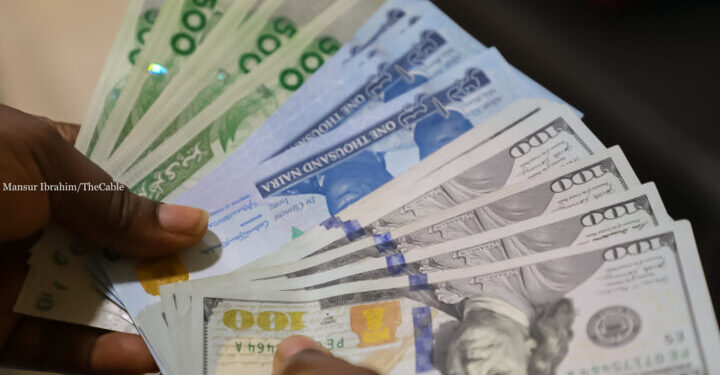The Nigerian naira experienced a slight decline against the U.S. dollar in both the official and parallel foreign exchange markets on Tuesday, as demand for the greenback remained high. According to data from the Central Bank of Nigeria (CBN), the naira depreciated by 30 basis points in the Nigerian Foreign Exchange Market (NFEM), closing at N1,532.94/$ compared to N1,528.03/$ on Monday. In the parallel market, the local currency settled at N1,590/$, down from N1,575/$ the previous day.
The naira’s performance continues to face pressure due to disruptions in Nigeria’s crude oil exports, a major source of foreign exchange earnings. An explosion recently forced the closure of the Trans Niger Pipeline, a critical route that transports crude from onshore oilfields to the Bonny export terminal. With a daily capacity of roughly 450,000 barrels, the pipeline’s shutdown has further strained Nigeria’s FX supply.
U.S. Fed Meeting in Focus
Currency traders are closely watching the Federal Open Market Committee (FOMC) meeting of the U.S. Federal Reserve, scheduled for Wednesday. The Fed is expected to maintain interest rates at their current level while providing updates on the economic outlook and potential future rate adjustments.
Federal Reserve Chair Jerome Powell emphasized the need for “greater clarity” on the direction of the U.S. economy, particularly in light of President Donald Trump’s unpredictable trade and fiscal policies. Markets remain cautious as Trump’s trade war with key partners, including the European Union, China, and Canada, continues to escalate. The U.S. president has vowed further retaliatory actions, raising concerns about inflation and economic growth.
Recent economic data has added to the uncertainty. The University of Michigan reported weak consumer confidence figures for March, while U.S. CPI inflation for February slowed more than anticipated. Although household consumption showed signs of recovery in February, it fell short of market expectations. Analysts predict the Fed will keep interest rates steady between 4% and 4.25% during this week’s meeting.
Global Market Developments
In Europe, the euro gained momentum after the German parliament approved a “debt brake” reform aimed at boosting spending and economic consumption. Conservative leader Friedrich Merz, set to become Germany’s chancellor later this month, described the reform as a significant step toward a new European defense community.
Outlook for the Naira
The naira’s performance in the coming days will likely be influenced by developments in the global oil market and the outcome of the U.S. Fed meeting. As Nigeria grapples with reduced crude oil exports and FX supply challenges, the CBN may need to implement additional measures to stabilize the currency.
Investors and market participants will continue to monitor these factors closely, as they could have significant implications for Nigeria’s economy and the broader financial markets.











